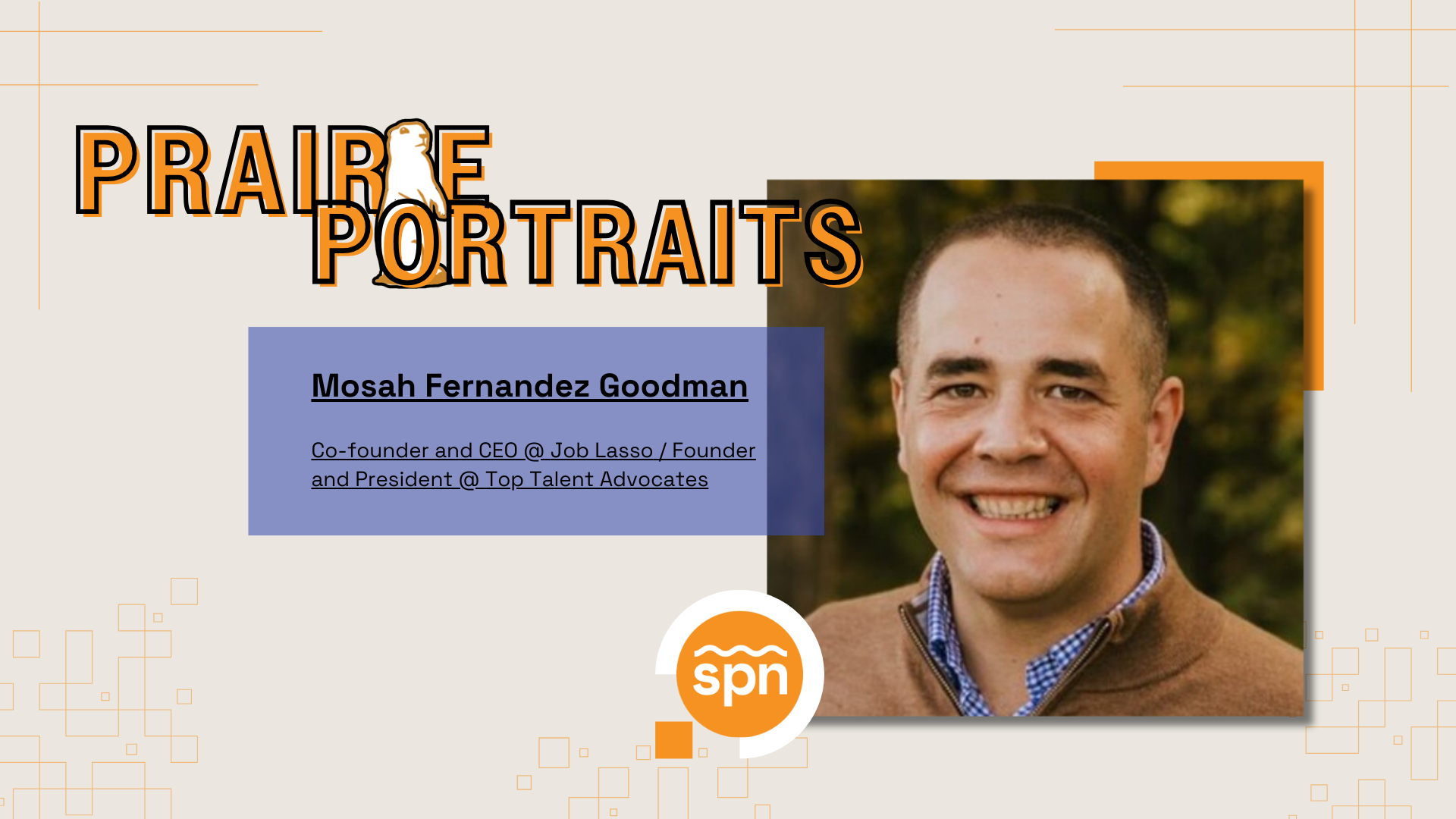 Willis Jackson, a regular contributor to Silicon Prairie News, is the founder of ShownHome, a startup building software to save real estate agents time by making it easier to schedule showings, providing accurate showing recommendations for buyer agents and identifying truly comparable homes for seller agents. (Photo courtesy of Malone & Company/Big Omaha.)
Willis Jackson, a regular contributor to Silicon Prairie News, is the founder of ShownHome, a startup building software to save real estate agents time by making it easier to schedule showings, providing accurate showing recommendations for buyer agents and identifying truly comparable homes for seller agents. (Photo courtesy of Malone & Company/Big Omaha.)
Jackson’s other activities include curating the StartupDigest for the Silicon Prairie region and acting as the lead writer for the currently dormant We are KC Tech.
Jackson can be reached by email at willis@shownhome.com or found on Twitter at @wfjackson3.

Willis Jackson’s startup, ShownHome, aims to save real estate agents time. Graphic courtesy of Jackson.
I recently quit my job to work on my first startup, ShownHome, full-time. Well, sort of my first startup. It all started because I hate to shave. We have no revenue, a hard to reach market and it is so unsexy that TechCrunch will never touch us with a 40-foot pole. So, what in the hell am I doing?
Well, I did evaluate a number of factors that I deemed to be the most critical for me. It is based in part on my previous experiences languishing in my last startup attempt, on my personality and my family status.
Here are the top six reasons I quite my full-time job to pursue my startup:
1. Personal budget
This was a sort of yes/no item for me. When I decided to consider quitting, I wanted to know how long I could make zero income before the savings my wife and I had put away ran out. I also wanted to know what it would take to get my expenses below my wife’s take home pay. My goal was to find a situation that was workable that we could both live with. Fortunately, I had decided over a year ago that I didn’t like gathering possessions very much, so I was already in the process of reducing my monthly expenses by selling my car and my house.
When I first started seriously considering quitting my job, I was looking at a worst case scenario of a deficit of $700 per month in our personal budget. If I was able to rent my house and I moved in with friends or family, I could have conceivably made that a surplus of $300 per month. As it turns out, right after I gave my two weeks notice, we got an offer and were able to sell our house.
I also considered the primary goal in all of this. It was never to quit my job per se, but rather to make my startup my full-time job and my primary day-to-day focus. To that end, I was able to negotiate an ongoing part-time arrangement with my “previous” employer in the 8 to 16 hours per week range. If you are thinking about quitting to work on your startup full-time, I strongly encourage you to consider this option. Of course, you have to be amicable when you resign and it certainly helps if they really need your skills.
2. Startup viability
If you are already generating revenue, then this should be a bit easier. Because I was considering quitting before the business had generated any revenue, it was important to consider if there was a way to make this work at all. I did my best to conduct interviews with potential customers, execute surveys and find and engage people on Twitter. More importantly, I was looking for validation that people had the problems we hypothesized about early on.
Honestly, this category is the subject of lots of books, blogs, conferences, etc. Rather than go into everything fully, here are some of the areas I considered when evaluating the viability (in no particular order):
- Total addressable market, Lifetime Value > Customer Acquisition Cost
- “Hair on fire” problem for users
- How will I reach my market?
- How will I defend the business?
- Required technical competencies
- How will I finance the first stage?
3. Startup idea-personal ability fit
Even if I deemed the startup viable, it was important to verify that it is something I was able to wrap my arms around and actually execute. Do I have domain expertise? Do I really need it? Do I have a network that can help me fill in my gaps? Do I know people with the other talents that will be needed to build this? I measured this based on my action/planning ratio over the course of the first week, which was just nights and weekends. I was able to spend very little time planning and more time doing, which was a good sign considering I can sometimes be biased to think too much and act too little. Granted that isn’t always the case, but I need to be biased towards action. Do something that moves me closer to the goal everyday. If I end up at huge roadblocks, I am holding everything back.
4. Startup timing
There are plenty of good ideas out there, but if the time is not right then maybe you shouldn’t quit your job. For me, this means identifying dependencies outside of my control that dictate the success or failure of this business. As an example, if my business really required that my users have access to 1Gbps internet connections, then it might be a while before I start making money. I might never make money, and I have no control over that. That doesn’t mean that it is a bad idea, but it might not be something you should quit your job over.
5. Time advantage
This was one of the most critical pieces for me. It seems obvious that spending more time on your startup would afford you more progress in less calendar days. However, it was more important for me to assess whether or not my ability to work during the daytime hours (the hours I worked at my old day job) would have a significant impact on the business. In other words, it wasn’t just about the quantity of hours I could devote to the business, but where in the day those hours fell. Could I take enough meetings with potential customers during after hours? In instances where I couldn’t, do I have enough vacation time that I can use to take daytime meetings as needed?
My target users are real estate agents, and I learned very quickly that they live very busy lives and don’t like to take meetings during after hours nearly as much as you might think. So aligning my life to make better use of each calendar day was a strategic time advantage.
6. Supportive spouse
This is easily the most important part of the equation. By quitting my day job, I was putting my wife in a position to go from less than half of our income to virtually all of it for an unknown period of time. Does she believe in this business? Is she generally supportive of the entrepreneurial adventure? Will she be a positive influence and drive me to be my best each day, or will I have to worry about her every time there is bad news? The reality is that she has goals, both professional and family, and many of them will simply have to wait for a while as we get this up and running. Worse yet, neither of us knows how long that will take, and that is pretty unfair to her. If she wasn’t all-in with me, it could create lots of tension and be a major distraction.
If your heart is leading you take the plunge but you can’t convince your spouse, I would suggest considering couples counseling. The reality is that starting your first business is a stressful thing for you to deal with on your own, but for someone else that might have previously relied on you to be the breadwinner, it is downright frightening. You have to find a productive way for both of you to talk it out and make sure that you don’t do damage to your relationship. There is no shame in getting help while you deal with one of the most stressful transitions you will likely ever experience in your life. Hell, I did it.
Because of what it takes for her to see me through to success, I really consider her an entrepreneur too. She will have to be scrappy, frugal and focused. She will have to balance multiple hats and at times it will feel like too much. Her family will think she is as crazy as me just for letting this happen. But if we are in the boat together, our only real option is to row as hard as we can in the same direction.



